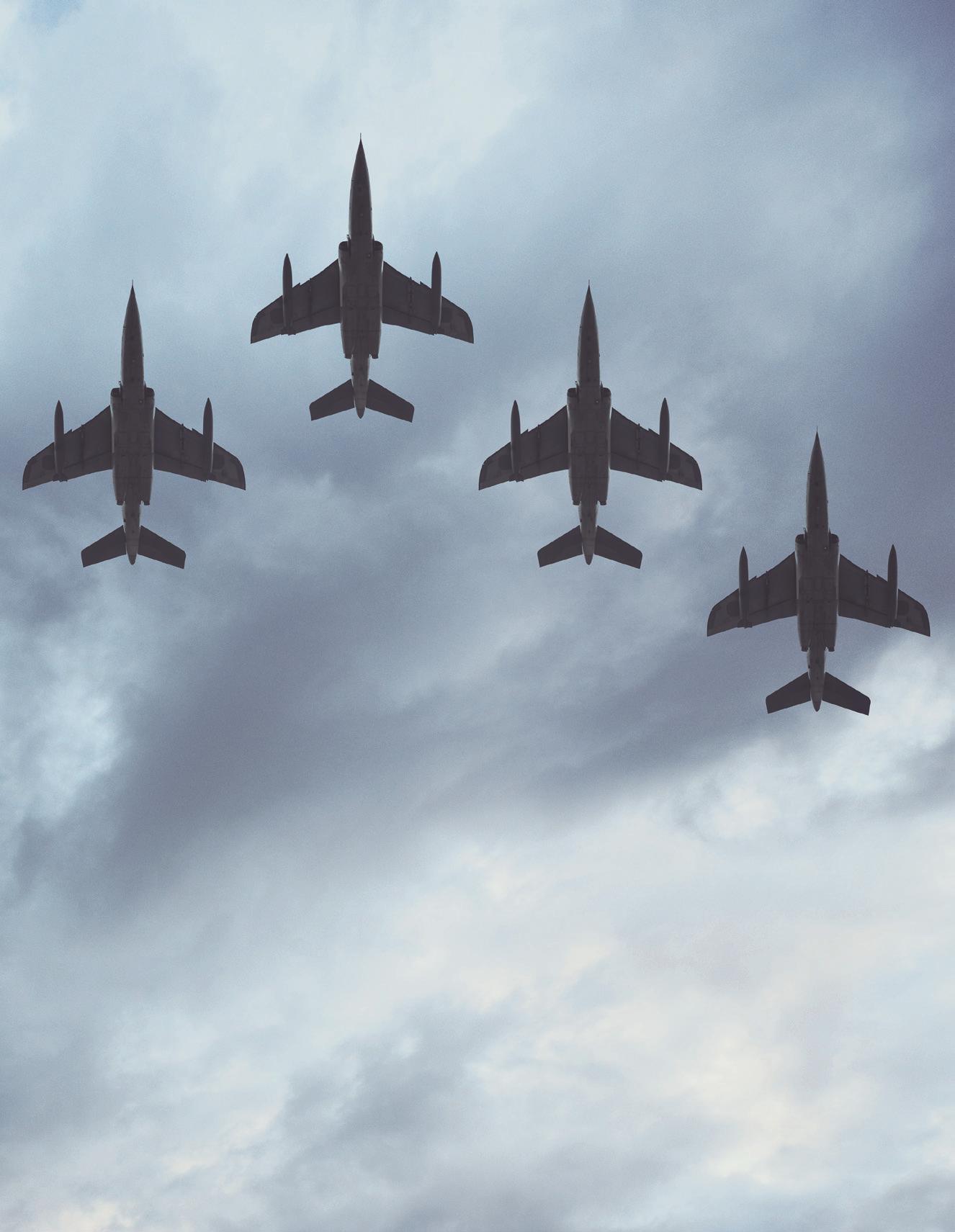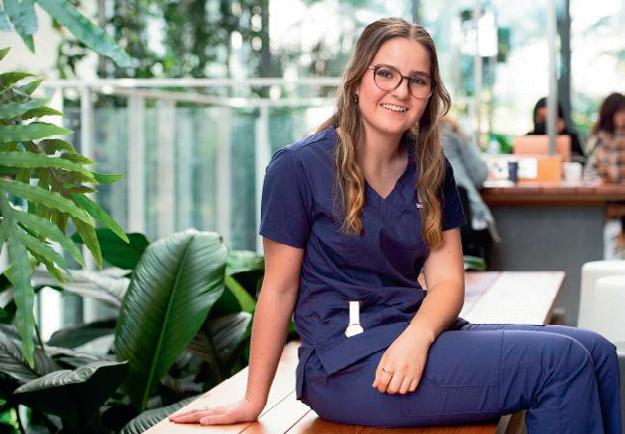
2 minute read
Merging the love of aviation and nursing
Rose Webster is hoping her love of aviation and nursing might one day merge, after swapping life in the Royal Australian Air Force for a nursing degree.
The 21-year-old Wiradjuri woman from rural New South Wales is in her first year of a Bachelor of Nursing at QUT in Brisbane, after a two-year stint with the RAAF.

She is keeping her future career options open, but is considering returning to the Air Force after graduating with her nursing credentials.
“Once I have my degree there are so many avenues you can go down with nursing — there are a million opportunities,” she said.
“I’m really drawn to paediatrics and potentially becoming a paediatric nurse practitioner, but the Air Force has also offered me the opportunity to apply to come back as a nursing officer. I’m also extremely interested in aeromedical evacuation, so it will be interesting to see what path I take and where I land!”
Rose grew up on a farm near the New South Wales–Victoria border and completed Year 12 in 2019 at Murray High School, where she was school captain.
She applied for the RAAF’s one-year gap program, and then stayed on for a second year.
“I was an avionics technician — I worked on the electronic systems for the C-27J Spartan,” she said.
“I enjoyed my Air Force job and the opportunities it gave me, but nursing is what I am passionate about.
“My mum’s a nurse and a few of my aunties were nurses. My dad works on farms and was an army reservist, so they’ve both had an influence on me.
“Dad also volunteers in the SES [State Emergency Service] and RFS [Rural Fire Service], which is why I am also a qualified bush firefighter with the RFS.
“We got deployed together during the 2019/2020 bush fires where we both received National Emergency Medals for our time contributed towards the effort.”
Rose did her RAAF technical training at Wagga and then worked at the Amberley base, south-west of Brisbane, so was already familiar with the city when she started looking at university courses.
“I’m really enjoying uni — this year has gone so quickly but I’m loving it,” she said.
“I love that the QUT course is so hands-on and that the standards we are raised to gives me a sense of confidence in our preparation for the workforce.
“The most challenging part of starting university was moving into the CBD and getting used to living in the middle of a city. I grew up on a farm and then lived on military bases, which are their own little communities too.
“But I got a place in QUT’s Indigenous Accommodation Program, which means I get to live in student accommodation for my first year. There are two floors that are just for the Indigenous program and it’s a really nice community to be part of.”
While living in the CBD, Rose is also putting her technical knowledge to good use in her part-time job — she works for an e-scooter company where she maintains and repairs privately owned scooters.
Rose applied to study nursing through the QUT Oodgeroo Unit’s Centralised Assessment and Selection Program (CASP) — an admissions pathway that is offered to all Aboriginal and Torres Strait Islander peoples who apply for QUT courses.
“I applied for my course through QTAC, then I received a CASP application pack and had to write a 500-word essay on why I wanted to do my course, and then I did a Zoom interview,” Rose said.
“It was quite an easy process, and it meant I was able to receive an early offer and have plenty of time to plan my transition to uni.” This semester Rose also got the opportunity to be a student representative at the 25th CATSNaM Conference in Sydney in August. The QUT School of Nursing partnered with the Oodgeroo Unit to send six Aboriginal and Torres Strait Islander nursing students to the event.









